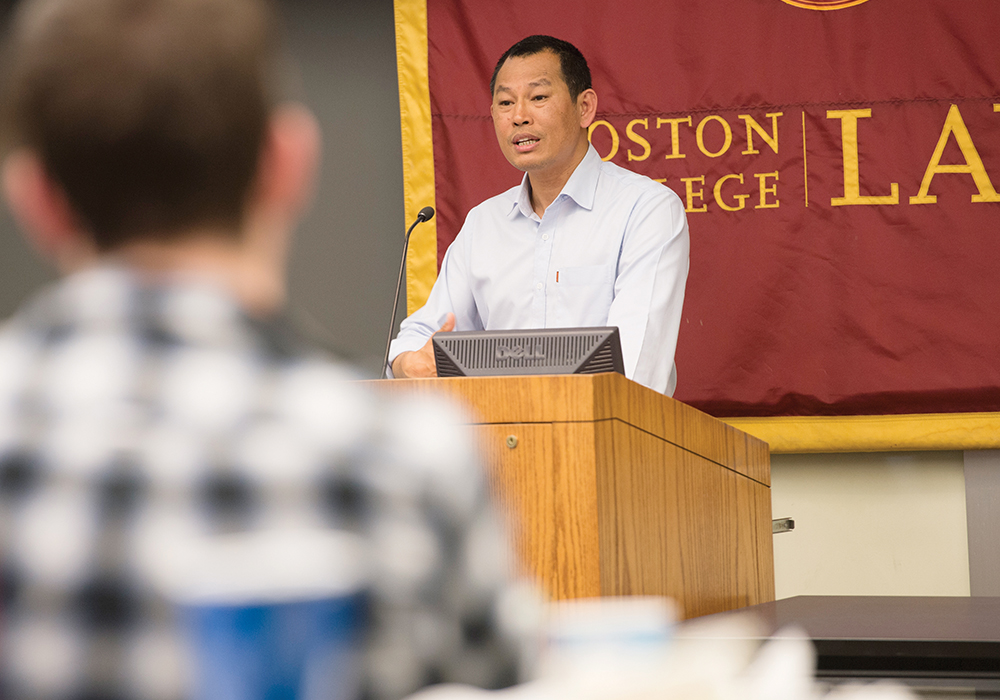When we hear the word genocide, many of us think of mass killings like the Jewish and Armenian holocausts or the slaughter of Rwandan Tutsis, but according to Maung Zarni, a Burmese scholar and activist affiliated with Harvard and the London School of Economics, “a case doesn’t need to reach staggering numbers to be considered a genocide. It could [be] fifty if done in an attempt to destroy a people.”
On April 13, Zarni gave a passionate lecture, sponsored by the Law School’s Owen M. Kupferschmid Holocaust and Human Rights Project, about the slow-motion genocide of his country’s Rohingya Muslim ethnic group by members of the Buddhist majority, a crime that has involved explicit violence on a relatively modest scale but also techniques like forced birth control, forced relocation, and denial of access to food and medical care.
Zarni, raised a Buddhist, described his shock at learning the details. “When you [find out] that Buddhist monks, Buddhist people are involved in … throwing young children into houses which have been set afire—it shook me to the core,” he said. Buddhists are taught not to kill living creatures, even ants. How could they, of all groups, he wondered aloud, perpetrate a genocide?
“A case doesn’t need to reach staggering numbers to be considered a genocide. It could [be] fifty if done in an attempt to destroy a people.” —HHRP lecturer Maung Zarni
The answer, he said, is common to every genocide: The perpetrator learns to see himself as a victim, and a defender of his nation or ethnic group. “We have to frame the target of the attack as a threat to our livelihood, a threat to our national community, as a virus, a leach, a bloodsucker,” he said. “Buddhists can go to a monastery and accumulate good karma while constructing Rohingyas as allies of Al Qaeda, as Muslim terrorists.” The internet has made this brand of rhetoric easier to disseminate. “If you’ve got broadband,” said Marni, “hate spreads very fast.”
All genocides, including the one in Burma, have another common element, Zarni said, in that genocidal acts are orchestrated, not spontaneous. “This is not like football hooliganism,” he said, “where your team lost and you want to express your rage. You always find an organization, you always find leaders who are mobilizing public opinion [in favor of] an act that is otherwise unthinkable.”
After the Rwandan genocide, the international community, through the UN, assumed a “responsibility to protect,” yet the world has not protected the Rohingyas, Zarni said. When alerted to the genocide, government officials from the US and Europe say, “Don’t rock the boat, [Burma’s military government] is opening up, if you push them too hard they will go back into their shell,” according to Zarni, who cited Burma’s strategic move away from China and its strengthening economic ties to Western nations as reasons for the governments’ reluctance to act.
He urged the forty-some audience members to contact their congressional representatives and media outlets on behalf of the Rohingyas. “A hundred years after the Armenian genocide,” he said, “we are still a long, long way from making [the] worthy slogan ‘Never Again’ a reality.”



